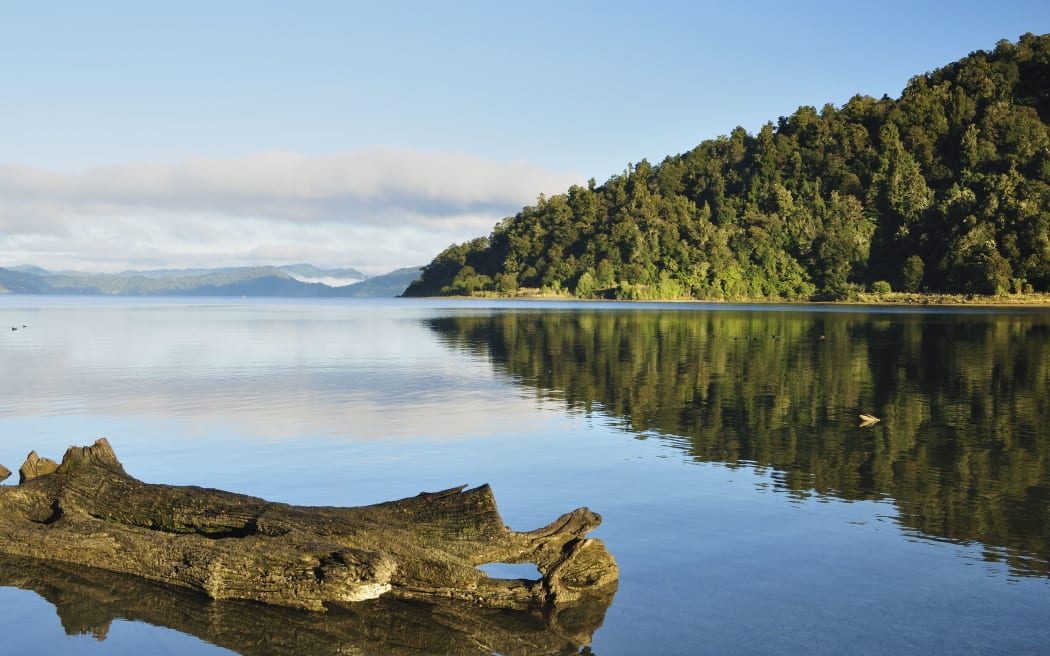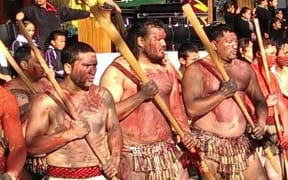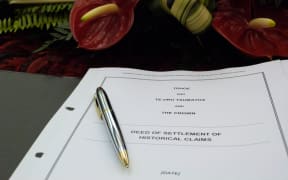Iwi say a Waitangi Tribunal report paves the way for compensation for decades of Crown misuse of Lake Waikaremoana.
The findings are in the fifth Waitangi Tribunal report on Te Urewera, released this morning.

Iwi say a Waitangi Tribunal report paves the way for compensation for decades of Crown mis-use of Lake Waikaremoana. Photo: AFP / Robert Harding
Claims were lodged by Tuhoe, Ngati Ruapani, Ngati Kahungunu, Ngai Tamaterangi, and other collectives and people.
The report found the Crown breached the Treaty of Waitangi by refusing to pay for use of the lake to generate hydro-electric power.
It said Lake Waikaremoana was of immense importance to Tuhoe and other iwi who brought the claim.
It described how, over generations, they forged associations with every part of the lake, their histories recorded in names all along its shores and headlands.
Since 1971, the Crown has paid to use the lake. But the report said up until then, the Crown used the lake without permission or payment, ignoring a 1918 ruling that recognised Maori ownership.
A Tuhoe leader, Tamati Kruger, said the report vindicated the iwi's view.
"The Crown dilly-dallied over sorting out lake title. The Crown totally ignored the Tuhoe owners and their offer for lease. Without any consent at all, in total arrogance, the Crown went ahead and used the lake."
The report identified seven breaches of the Treaty.
It said the Crown denied Maori owners justice by delaying court proceedings for decades, and then ignoring a final 1944 court decision for a further decade.
The Crown also breached Treaty principles in 1971 when it insisted on only backdating payment for use of the lake to 1967.
Furthermore, the report said the Crown breached the Treaty in 1946 when it permanently lowered the lake level without consultation or compensation for the long-term environmental damage.
Tuhoe settled its major $170 million claim against the Crown earlier this year.
However, Lake Waikaremoana was specifically left out of the claim, and Mr Kruger said the iwi needed to think about its next steps.
"Both parties have to work with goodwill in order to resolve issues, rather than start at the blame-game level. I think this chapter assists both parties in realising what needs to be talked about."
The lawyer for another claimant, Ngati Ruapani, Kathy Ertel, said the tribunal findings would have significant repercussions.
"The Tribunal has found that, according to the Treaty, the lake as a whole is a taonga, so it doesn't separate between the bed and the water.
"It also says that the owners of the lake, which includes Ngati Ruapani, should have received compensation for the use of their lake for hydro-electricity purposes."
Ms Ertel said the report cleared the way for certain claims Ngati Ruapani may make when it negotiates its own Treaty settlement.
"A better title for the lake which includes the water as well, a compensatory provision for the use of hydro-electricity, which has essentially proceeded on the basis that the water is free, and is owned by nobody. Those are really important issues that we need to look at."
Genesis Energy, which the Government sold a 49 percent stake in earlier this year, owns the power stations that make use of the lake.
Ms Ertel said private shareholders would need to be included in discussions about how iwi should be compensated for lost payments.




